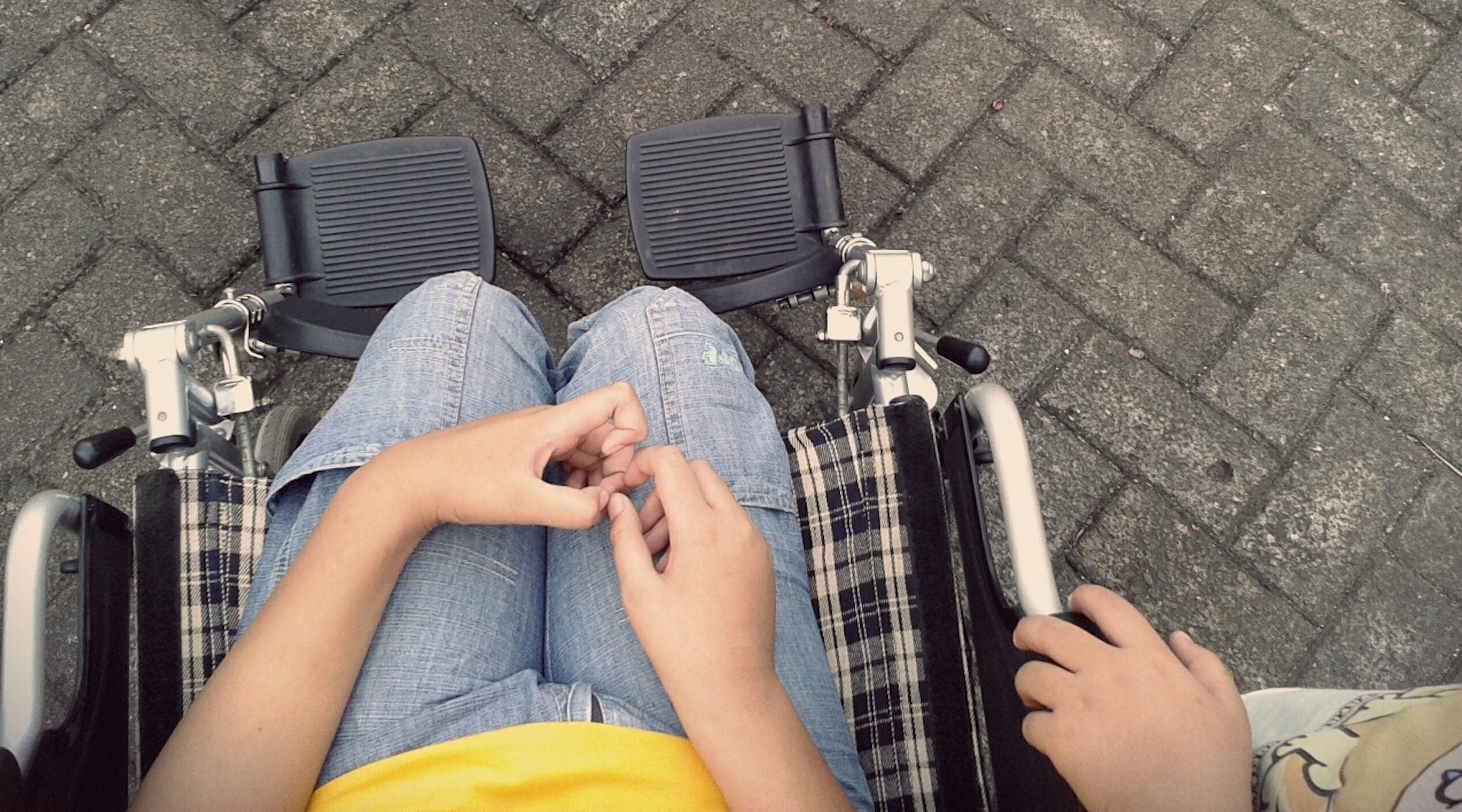(JTA) — Discussions about accessibility and inclusion for those with disabilities have become more mainstream in the Jewish world. But there are plenty of issues that still need to be addressed — from concrete problems, such as synagogues that aren’t accessible to those in wheelchairs, to widespread ignorance about what it means to have a disability and how even well-meaning Jewish institutions make many people feel unwelcome.
To coincide with Jewish Disability Awareness and Inclusion Month in February, JTA asked Jews with disabilities to share their thoughts on how the Jewish community is doing in terms of including them. Their emailed responses have been lightly edited for grammar and style.
Inclusion is a matter of Jewish justice
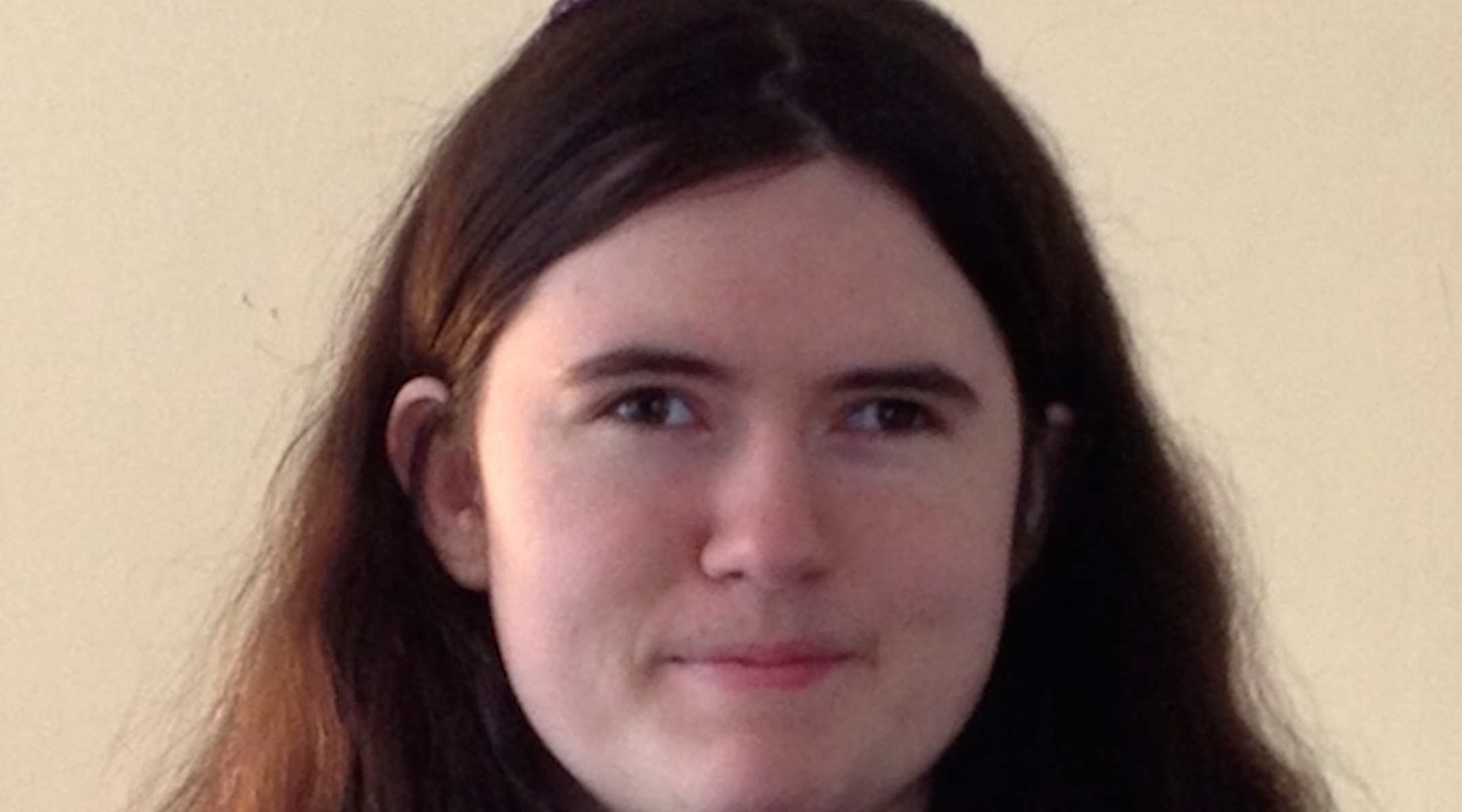 Rabbi Ruti Regan (Courtesy of Regan)
Rabbi Ruti Regan (Courtesy of Regan)
Rabbi Ruti Regan is a disability advocate and the first openly autistic person to be ordained by the Jewish Theological Seminary.
I think that in some ways “inclusion” is the wrong framing, because Jews with disabilities have always been part of the Jewish people. The problem is that our communities have not acted accordingly. For instance, synagogue sanctuaries have been built with the assumption that everyone who belongs on the bimah can walk and stand. The planned stage for the 2017 Jewish Theological Seminary ordination/investiture ceremony was not wheelchair accessible. Out of respect for our colleagues and future colleagues, we insisted that a ramp be provided. A space built exclusively for walking people is not an appropriate sacred space for ordination. In addition to architectural considerations, we need to build accessibility and equal kavod [honor] into everything we do. As I wrote for Gleanings, we need new approaches to teaching that make room for difference, such as developing methods for group discussions that work when some participants have communication disabilities.
More broadly speaking, we need to approach disability not as a form of charity to the less fortunate but as a Jewish justice issue. The Matan Jewish Disability Awareness and Inclusion Month lesson plans are one resource that can be used to teach disability equality as a Jewish value. We have excluded people for centuries, and it has left us without expertise and infrastructure. This is not a problem we can solve simply by adopting a better attitude; we need to devote considerable resources to catching up. Working for equality is a long-term effort. Luckily, we’re Jews, and Jewish culture has a lot of wisdom about doing hard things. As it says in the Mishnah, “It is not upon you to complete the work but neither are you free to desist from it.”
In love and marriage, disability is still treated like a stigma
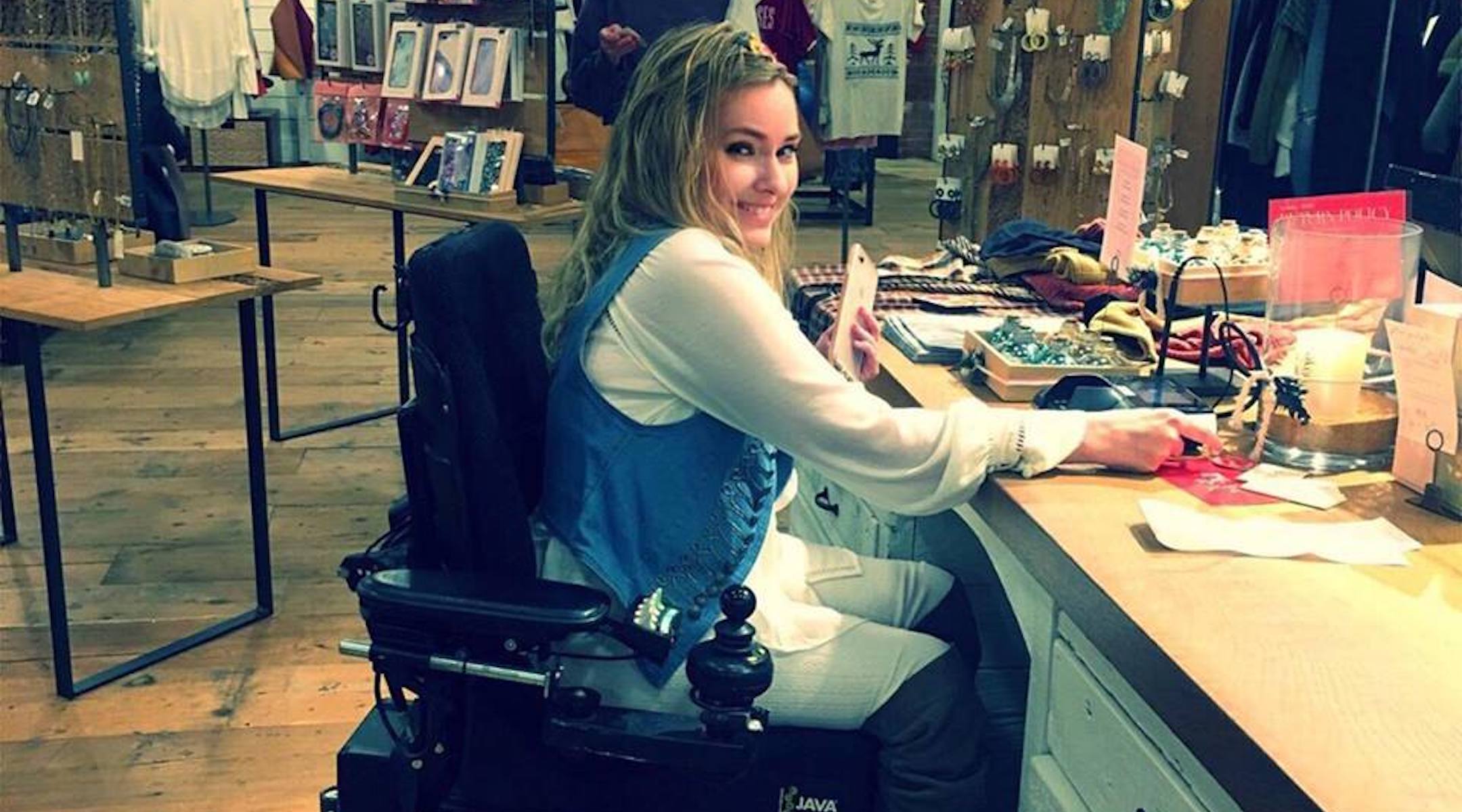 Ariella Barker (Courtesy of Barker)
Ariella Barker (Courtesy of Barker)
Ariella Barker is a political communications fellow at RespectAbility, a nonprofit organization that works to fight stigmas and advance opportunities for people with disabilities.
As an Orthodox convert with a disability, and a dual Israeli-American citizen, I have a unique perspective on how the Jewish community deals with disability inclusion. The community is truly incomparable in terms of being supportive and caring. People with disabilities often struggle with medical issues, wheelchair breakdowns, etc., and the community is always there to help, bring meals or visit, as opposed to the typical response of “you’re in my prayers.”
However, where I’ve experienced difficulty in being accepted by the community is in the context of love and marriage. The Jewish community tends to view disability as a defect when approaching shidduchim (matchmaking). As a result, despite being a young, intelligent and highly educated attorney, I have been set up with a grandfather of six, a convicted pedophile and fugitive from justice, the perpetually unemployed or, most common, others with disabilities, with whom I have nothing in common other than a disability. Often this mind frame comes from the intention of ensuring genetically pure non-disabled children. Obviously no one wishes to have a child with disabilities. But breaking off a relationship or refusing to date someone because of perceptions of an “impure” genetic line or disability sends an ableist message that people with disabilities are better off dead or a burden to their loved ones.
Put people with disabilities in leadership roles
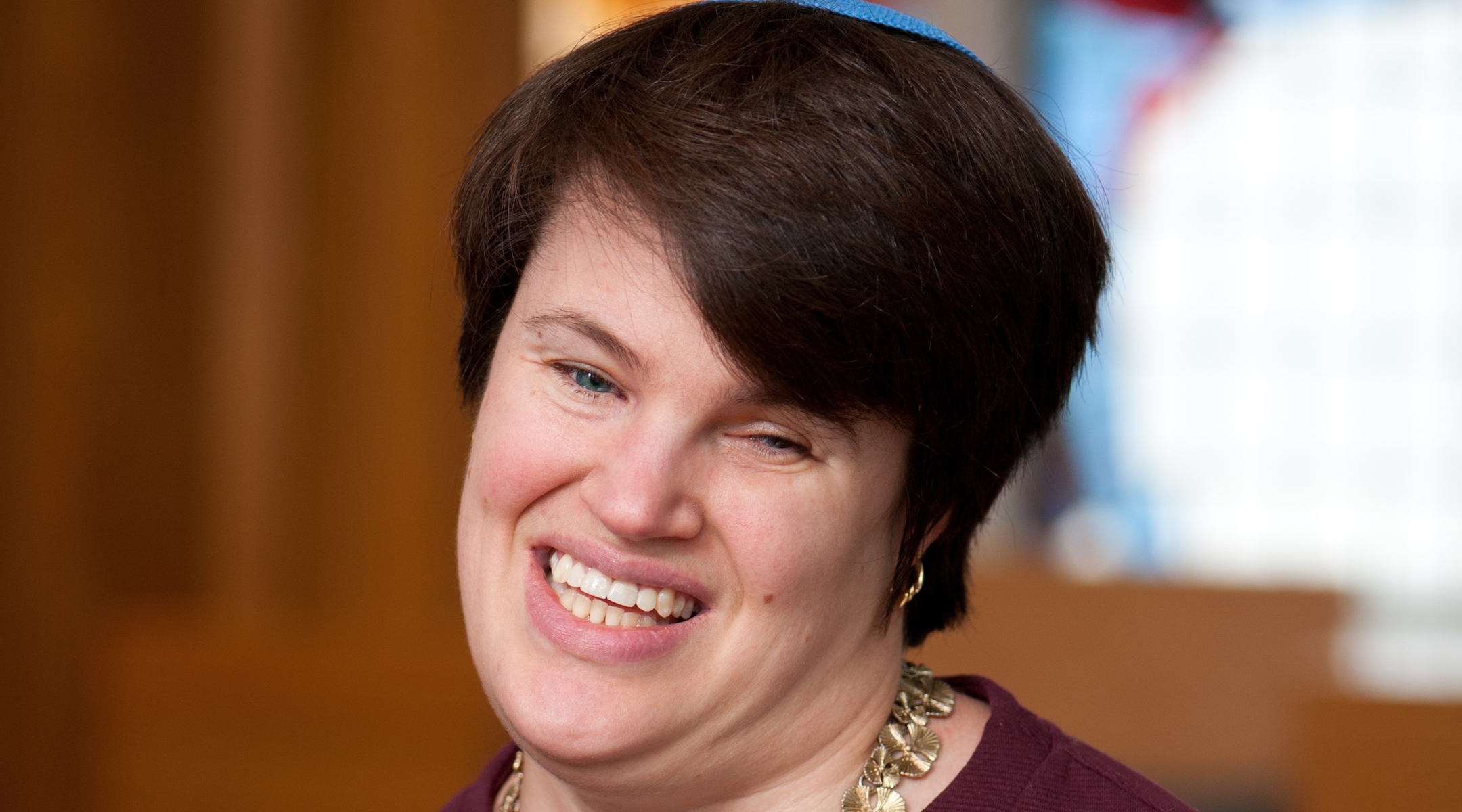 Rabbi Lauren Tuchman (Courtesy of Tuchman)
Rabbi Lauren Tuchman (Courtesy of Tuchman)
Rabbi Lauren Tuchman is an educator who is believed to be the first blind woman ordained as a rabbi.
One area of progress is the number of Jews with disabilities becoming religious and communal leaders, including the growing cohort of rabbis with disabilities across all denominations and movements. Unfortunately, our existence is not well-known among Jews with disabilities as a whole and much needs to be done to shift this. Representation is important. Though we are each the experts on our own disability experiences alone and must never claim to speak for or on behalf of others, having folks with disabilities in leadership positions sends a message that people with disabilities are wanted as part of the fabric that binds communities together instead of being seen as a burdensome afterthought, as is often the case.
We are seeing an increasing number of synagogues engaged wholeheartedly in access and inclusion work both on the individual level and as part of larger cohorts of communities within each movement of Judaism. Nevertheless, the work is far from done, and I know that there are many communities who are just getting started. Outside of synagogue life, we have much work to do. I would love to see sustained work done to make Jewish social spaces, including spaces for young professionals, more accessible and inclusive. Just as there are many pathways into Jewish community for Jews without disabilities, so, too, must we insist that the synagogue not be the only place where we do inclusion work. Jews with disabilities are in all of our communal spaces and spheres. We must work to make all Jewish communities maximally accessible and inclusive. This is also true of service trips and travel opportunities writ large, both in terms of Israel trips and trips to other places of Jewish historical and contemporary import.
Inclusion work is often challenging. We must always encounter the work with a sense of holy responsibility and deep humility, being willing to partner with Jews with disabilities, who are the experts on their own lives and asking them what it is they want from Jewish life. Too often we look at a person with a disability and assume that it would be too expensive, burdensome or resource-heavy to include them. What we fail to ask is, what message are we sending about Jewish communal belonging when we exclude? Having experienced my fair share of Jewish communal exclusion, I try to carry that sensitivity into all facets of my life and work.
We’ve come a long way — but not long enough

Matan Koch (Courtesy of Koch)
Matan Koch is a lawyer and the founder of Igniting a Fire for Universal Inclusion, an initiative to promote inclusion of people with disabilities. He has written about his experience using a wheelchair.
Jewish inclusion has come a long way in my lifetime, from a concept that no one was even thinking about to something that is on the tip of everyone’s tongue. We’ve seen substantial changes in physical access, and our camps and our youth programs, and in exemplars that have led the way. Now we need to take the next great leap forward, expanding inclusion to all of our synagogues, day schools and Jewish organizations, and elevating a new generation of Jewish leaders with disabilities, be they lay, staff or clergy. We are poised to contribute to all parts of life, Jewish and secular.
Recognize inclusion as a political struggle
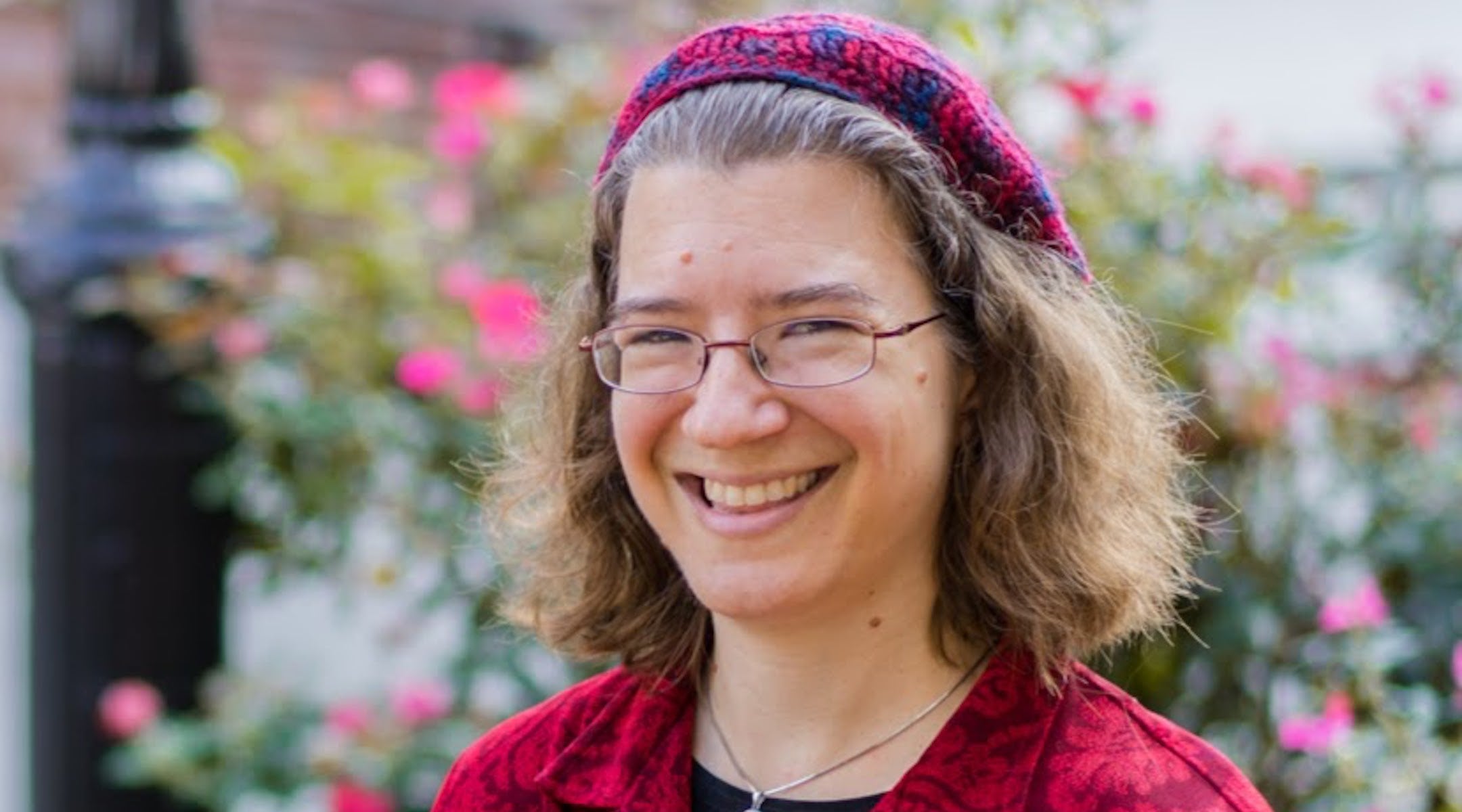
Rabbi Julia Watts Belser (Courtesy of Belser)
Rabbi Julia Watts Belser is an associate professor of Jewish studies at Georgetown University and a disability activist.
As a rabbi and a disability activist, one of my commitments is to help Jewish communities recognize disability as a social justice issue. Disability communities have been on the frontlines of a number of key political struggles: opposing devastating cuts to health care and Medicaid, advocating for disaster response policy that centers the needs of elders and disabled people, and challenging the rollback of the Americans with Disabilities Act, a signature piece of civil rights legislation. I’d love to see more Jewish communities working in solidarity with disability advocates and activists — helping to build a world in which all of us are meant to survive and thrive.
Accessibility shouldn’t be treated as an afterthought
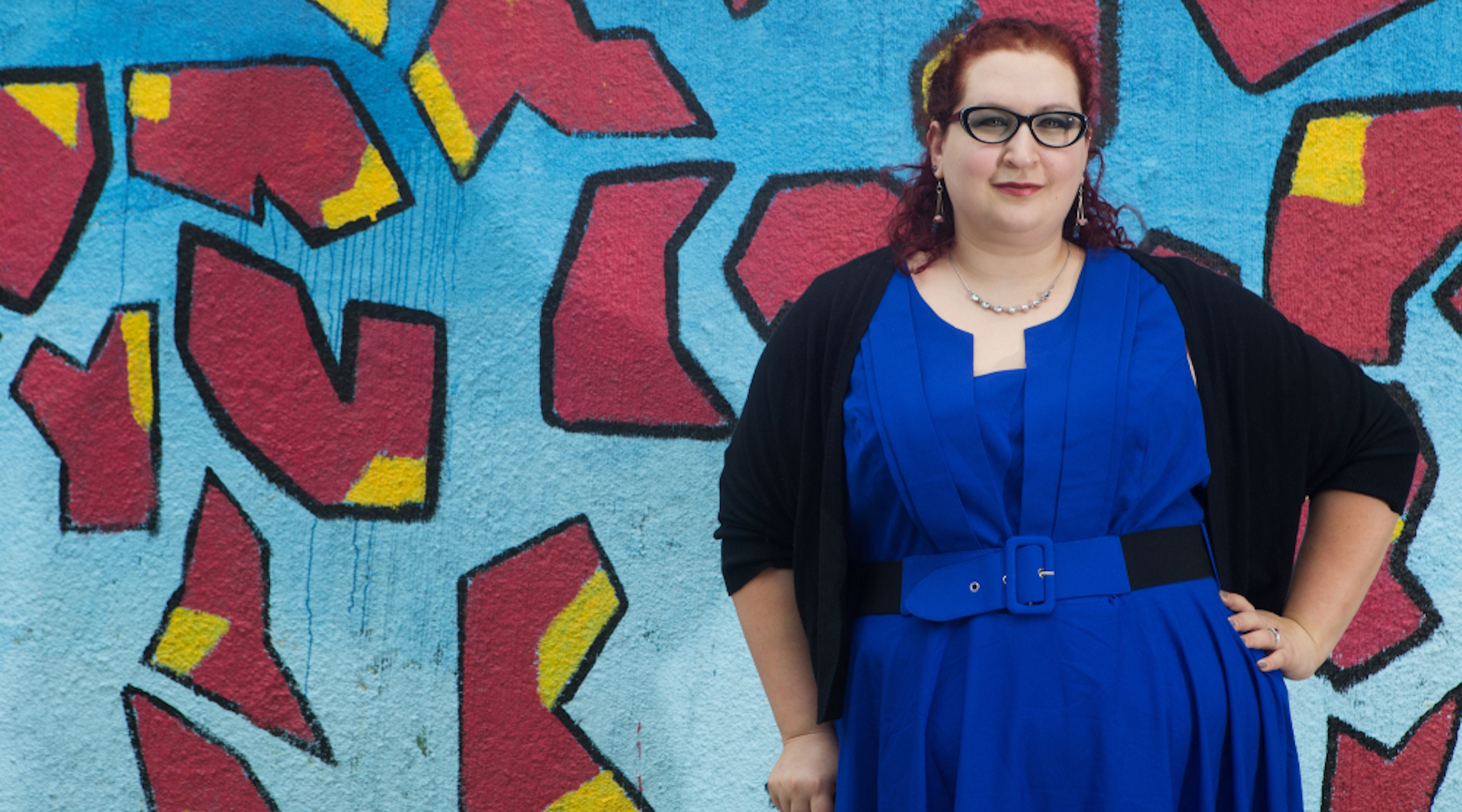
Shanna Kattari (Courtesy of Kattari)
Shanna Kattari is an assistant professor at the University of Michigan School of Social Work who researches disability and ableism.
Sometimes I think the Jewish community does a great job of including disabled people like myself, often in spaces that already cater to Jews who are experiencing other marginalization. I think about the yearly Queer Seder in Denver, which had two ASL specific tables full of interpreters for deaf/hard-of-hearing guests, a variety of food options including vegan/gluten free for those of us with Celiac disease and casein allergies, and a fill-in-the-blank box on the RSVP page to share any other accommodations participants might need (such as a seat near a door or closer to the front, a chair with arms, etc.).
Conversely, there are a lot of events where accessibility is a total afterthought, if even a thought at all. How many bimahs are inaccessible to wheelchair users or those with other mobility impairments? How many Sunday School programs are prepared to support autistic kids? Few shuls have a couple of Tanakhs on hand in braille should someone blind show up for services, or low/no scent spaces at their High Holy Days services or Shabbat dinners for those of us with multiple chemical sensitivities. Accessibility and inclusion is, at the very least, an issue of justice. If we truly want to encourage all Jews to participate fully in Jewish community and culture, we have to create spaces that give access info up front (including where accessible parking is, whether there are barriers, if interpreters are available, who to contact about food needs, etc.), and be thoughtful about what it means to truly welcome disabled Jews in our Jewish spaces.
‘Awareness’ is only the first step. We need action.
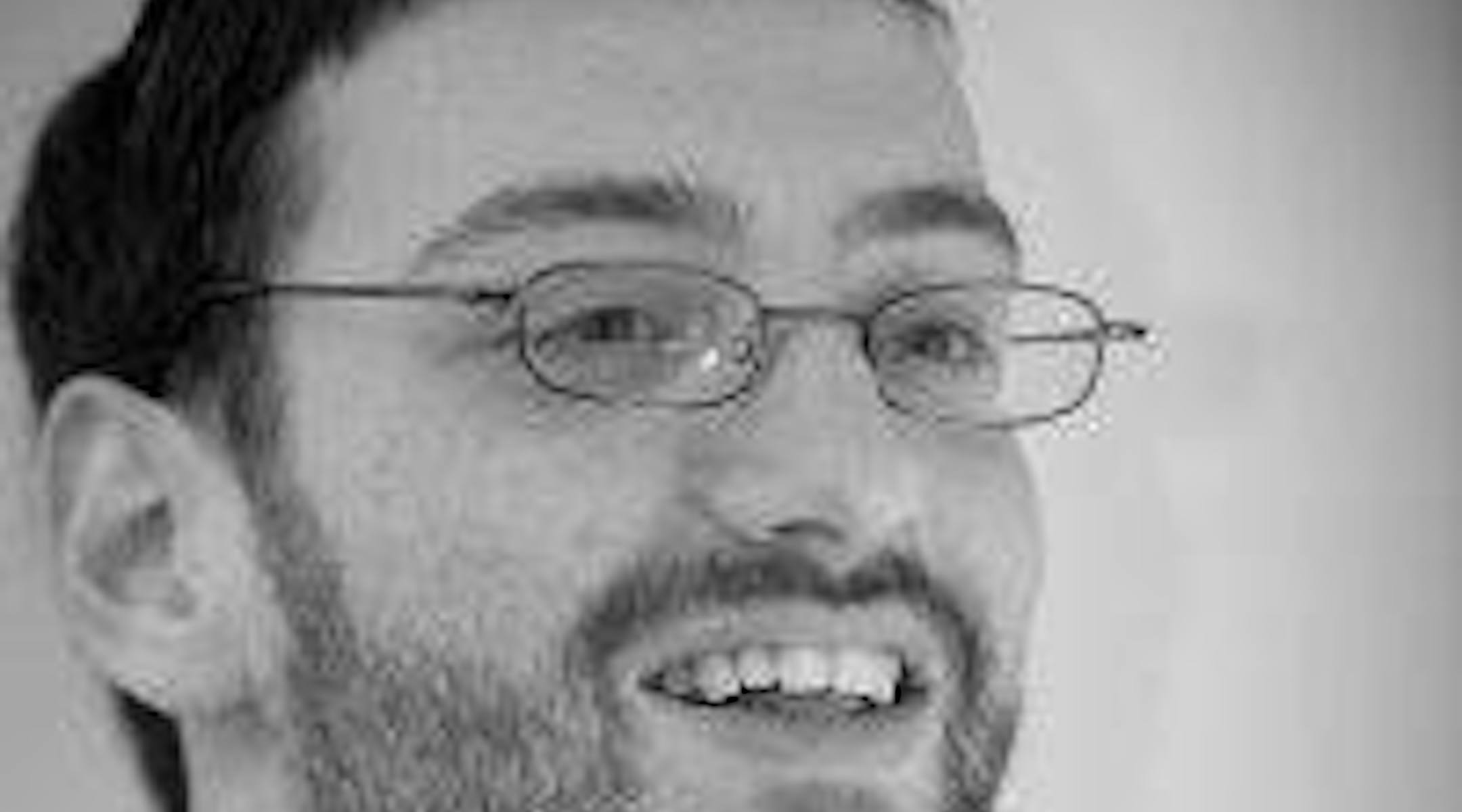
Jason Lieberman (Courtesy of Lieberman)
Jason Lieberman is a disability advocate who has written about living with cerebral palsy.
Jewish Disability Awareness and Inclusion Month has been successful in many ways, but we have much work to do.
There are more articles, more conversations, less stigma around the fact that there are people with disabilities in the Jewish community. However, in far too many communities, although not all, we have yet to move beyond the awareness stage to the action stage. I personally say action as apposed to acceptance because I view acceptance as far more passive than we need.
Here are some examples of actions that Jewish communities can take:
1. Form an accessibility or inclusion committee.
2. Perform an accessibility assessment and make a list of doable improvements.
3. Place a note in the bulletin requesting that if people need assistance they should contact the office, the committee, the president of the congregation, the clergy, an usher or gabbai for assistance.
4. Everyone mentioned above should know what is easily available and have access and knowledge what is presently available.
5. Introduce yourself to someone you don’t recognize.
6. Work with shiva committee to see if any homebound people want a minyan in their home for a family yahrtzeit.
7. Remember most accommodations cost under $500 and more than half of those, including my list, cost nothing.
Words can perpetuate stereotypes
Sheryl Grossman is a member of Link 20, a Ruderman Family Foundation global social movement of young activists who promote the inclusion of people with disabilities.
While the Jewish community has striven hard, especially in the last decade, to break down the barriers to disabled Jewish exclusion in community life, there is much work to be done. We are instructed to “remove the stumbling block before the blind” and to “not put it there to begin with.” And Maimonides teaches us that the highest form of tzedakah is to “help one help oneself.”
It is hard to achieve the goal of full inclusion in community life when negative stereotypes stand in our way. We unknowingly reinforce these stereotypes when we say to a pregnant woman that “all should be in the right time,” bless one who sneezes and wish one a “happy and healthy” New Year. All of these place a negative value on disability. When society reinforces these ideas, it is no wonder that disability is still not talked about for fear of a lack of marriage match. May the day come soon when Jews with disabilities don’t just celebrate one day, or one month, where the world acknowledges us, but rather that every day is Jewish Disabled Inclusion Day!
JTA has documented Jewish history in real-time for over a century. Keep our journalism strong by joining us in supporting independent, award-winning reporting.
